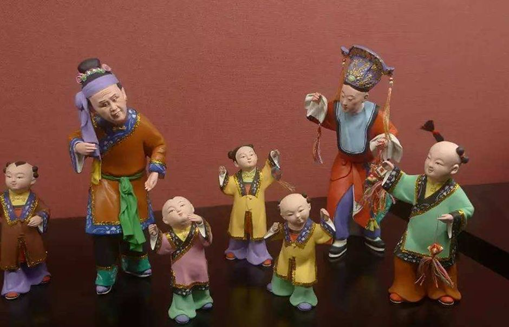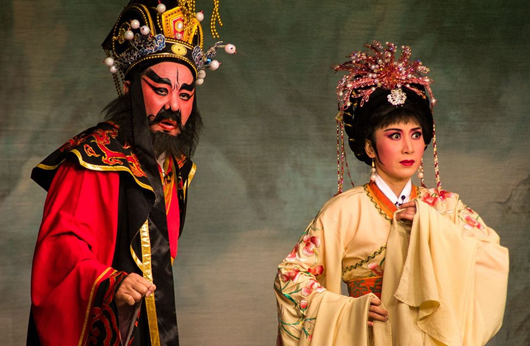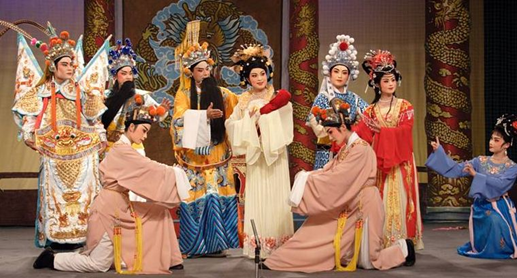Dawu Clay Sculpture is one of the three
largest clay sculptures in China. It is named after Dawu Village, Chaoan
District, Chaozhou City, Guangdong. Standing on the land of Nanyue, looking
east, at the junction of land and sea, a large area south of the Lotus Mountain
Range and north of the South China Sea, people usually call it Chaoshan.
Dawu clay sculptures are traditional
handicrafts in Chaozhou, Guangdong. It originated in the Southern Song Dynasty
and flourished in the late Qing Dynasty and the early years of the Republic of
China. The production uses techniques such as carving, sculpting, pinching,
pasting, engraving, printing, and coloring. The works are mainly composed of
drama stories and characters, and the image is vivid and lifelike. According to
understanding, " "Dawu Clay Sculpture", Tianjin "Clay
Figure Zhang" and Wuxi "Huishan Clay Figure" are called my
country's three major clay sculptures.

For thousands of years, the land of
Chaoshan has not lacked the stability and solidity of farming civilization, but
also the perseverance and courage to grow towards the sea. The Chaoshan culture
rooted here has been integrated and has become a highly recognizable place in
Lingnan culture and even Chinese culture.
Chaoshan culture has a long history and
has inherited many intangible cultural heritage. Chaoshan’s intangible cultural
heritage has five characteristics: 1. Numerous projects and high value 2. Long
history 3. Complex craftsmanship and high technical requirements 4. Masters and
celebrities come out in large numbers with great influence 5. High penetration
rate.
In ancient times, the per capita arable
land in the Chaoshan area was small, so fine handicrafts were developed in the
Chaoshan area. The origins of some major representative Chaoshan intangible
heritage projects can be traced back to the Tang and Song Dynasties. Chaozhou
intangible cultural heritage represented by Chaozhou embroidery, Chaozhou
porcelain, Chaozhou sculpture, Chaozhou opera, Gongfu tea, Chaozhou cuisine,
etc., are treasures of Chinese culture.

Chaozhou Opera, also known as Chaozhou
Opera, is an ancient Han national opera genre sung in Chaozhou dialect. It was
selected as the first batch of national intangible cultural heritage protection
list in 2006. Because of the influence of Gaoqiang opera, Chaozhou opera still
retains its unique gang style. Chaozhou opera has a complete range of
activities, among which Sheng, Dan and Ugly are the most local characteristics.
Chaozhou opera has a wide audience among Chaoshan people.
Located in the small park in Shantou
City, Guangdong Province, many tourists come to visit and play every holiday.
Here, visitors can feel the traditional culture of Shantou. There are 17
thematic museums in the small park, allowing visitors to see historical and
cultural relics. At present, there are many immovable cultural relics in the
small park and surrounding areas, including 4 key cultural relics protection
units in the country, accounting for two-thirds of the city. During the
National Day holiday this year, the number of tourists in the small park
reached 538,000.

Like Shantou, Chaozhou has been actively
building a city with culture in recent years. Promote the development of
tourism with culture and create "favorite domestic tourism
destination". At present, the ancient city pattern of the
three-mountain-one-water moat in Chaozhou is complete, with more than 720
ancient streets and lanes remaining. Chaozhou initiated the renovation of 139
cultural relics and 31 cultural preservation units including the former
residence of Tang Boyuan, the Confucian Palace in Haiyang County. In the
process of inheriting traditional crafts and intangible cultural heritage,
Chaozhou has also taken active actions to improve the level of traditional
textile crafts based on Chaozhou embroidery, so that Chaozhou culture can be
seen by the world.

Forward from:
http://ent.chinadaily.com.cn/a/202011/12/WS5fac9c78a3101e7ce972f1e9.html




Comment Cancel reply